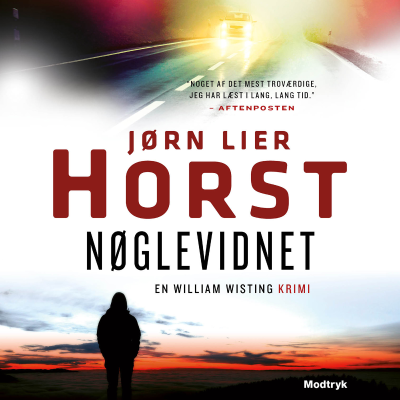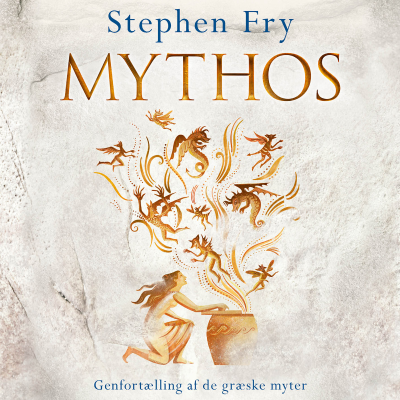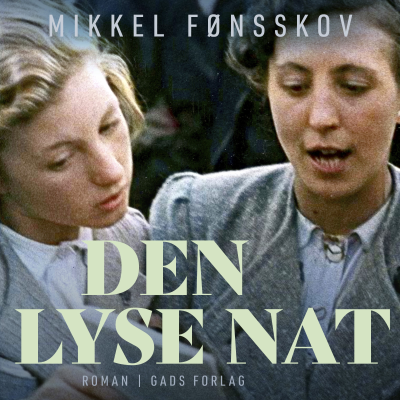
The Kainos Podcast
Podcast af Alexander Beiner
Prøv gratis i 7 dage
99 kr. / måned efter prøveperiode.Ingen binding.

Mere end 1 million lyttere
Du vil elske Podimo, og du er ikke alene
Rated 4.7 in the App Store
Læs mere The Kainos Podcast
Kainos tells stories that help people make sense of the world and imagine new futures. beiner.substack.com
Alle episoder
13 episoderJoin Helena Norberg-Hodge, Douglas Rushkoff, John Vervaeke, Nora Bateson, Josh Schrei and more in Sensemaking 102 [https://www.studiokainos.com/sensemaking-102]. Navigate complexity and embody new narratives around Tech, Economics, Myth, Power, Systems and Meaning. The live cohort begins on Wednesday, June 11 and the content only option is available throughout the course. McDonalds in the desert. Coca-Cola in the mountains. The International Monetary Fund. The World Bank. The same clothes, the same thoughts, the same ideas recycled through different cultures again and again. Anger at globalisation is one of those rare forces that unites people across the political spectrum. As modern life fractures and frays, it’s become one of the fundamental issues of the era. It lies at the heart of our debates around tariffs, immigration and identity.But what’s the alternative, and is it worth it? Are our lives better when we come back to local community? What do we gain, and what do we lose? Helena Norberg-Hodge is an author and film-maker. She’s one of the leading voices in the localisation movement, and the founder of Local Futures, which is committed to the revitalisation of cultural and biological diversity and the strengthening of local communities and economies worldwide. In 1975, having studied linguistics with Noam Chomsky at MIT, she was invited to accompany a film team to the remote region of Ladakh, or ‘Little Tibet’, which had been sealed off from the outside world and had only recently been opened. Helena became the first Westerner in modern times to master the Ladakhi language, and gained deep insights into the workings of one of the few cultures that remained untouched by the modern world. She went on to write ‘Ancient Futures’ arguing for the importance of localisation, and of rejecting the homogenising forces of global capital. Five decades and several books later, the question of how we come back to ourselves and to local land and culture is more pressing than ever. Leviathan Screenings If you’re looking to find the others and watch our first feature-length documentary Leviathan in real life before our online premiere on the 26th, we have a growing list of screenings happening around the world. You can find the first ones below, with many more to come.Official London Premiere [https://www.tickettailor.com/events/alexanderbeiner/1729808] on Thursday, 26 June hosted by Alexander BeinerBerlin Screening [https://lu.ma/fqyusgl3] on Tuesday, 24 June hosted by WeSpace (with Alexander in person for Q&A) Cape Town Screening [http://tinyurl.com/Leviathan-RSVP] on Sunday, 23 June hosted by Daniel Shaw Buckfastleigh Screening [https://dandelion.events/e/q55gi] on Sunday, 23 June hosted by The Moor Imagination Collective Available Soon: Stockholm Screening on Thursday, 26 June hosted by Nora Bateson and Pella Thiel (with Alexander on virtual Q&A) Toronto Screening on Thursday, 26 June hosted by Peter Limberg Tel Aviv Screening on Saturday, 21 June hosted by Michael Fine / Fermata Berlin Screening on Saturday, 21 June hosted by Lovers and Leaders Singapore Screening on Saturday, 21 June hosted by Ryan Cheng Capetown Screening on Sunday, 22 June hosted by Inet Strydom / Grabouw This is a public episode. If you'd like to discuss this with other subscribers or get access to bonus episodes, visit beiner.substack.com/subscribe [https://beiner.substack.com/subscribe?utm_medium=podcast&utm_campaign=CTA_2]
Journey into the deep code of culture in our new online course: Sensemaking 102 [https://www.studiokainos.com/sensemaking-102]. Expand your view on what’s happening and why with the help of an amazing faculty and new practices. Connect with like-minded travellers to inquire, question, and embody. Myth. Power. Economics. Tech. Systems. Meaning. Register on studiokainos.com/sensemaking-102 [https://www.studiokainos.com/sensemaking-102] What matters most, what we do or how we do it? Which is more real, a relationship or a rock? Our focus at Kainos throughout the spring has been on the polarities driving our cultural, political and spiritual upheaval. Our recent conversation with psychiatrist, philosopher and author Iain McGilchrist [https://substack.com/profile/65226974-iain-mcgilchrist] was a high point. We discussed Iain’s thoughts on the political and social shifts of recent months, whether AI can become conscious, how to relate authentically to nature, and why constraints create meaning. Kainos Community Members shared scintillating questions and insights, and we left the session buzzing. You can watch it on Substack, or listen to it as a podcast on Spotify [https://open.spotify.com/show/6bMUw7dSSxhNkpDVDzShqV] or Apple [https://podcasts.apple.com/gb/podcast/the-kainos-podcast/id1713784847]. The conversation helped me develop my recent piece Ocean of Elephants [https://beiner.substack.com/p/ocean-of-elephants-embodiment-trans], which turned out to be one of my most polarising in years. I had a feeling it might be, as I was taking a more fixed philosophical position than I normally do. Thanks to everyone who wrote or commented; it’s helped me to hone my thinking and consider new angles.Specifically, I’ve been chewing on the paradox that our capacity for abstraction frees us and traps us at the same time. Imagining new worlds and thinking up new ideas is exactly what we need to respond to the polycrisis. But spending thirty years on the internet has blurred the boundaries between theory and reality, leading many to confuse the two. We’re still figuring out how to balance hyper-abstraction with grounded social action. If we can collectively crack that, we’ll open up a wellspring of creativity and collaboration.We have a community session to discuss this polarity on Monday, 19 May. You can join that, and many sessions like it, by becoming a Kainos Community Member, or you can choose a regular subscription to gain early access to these films and exclusive pieces. It’s About to Get WeirdIt’s probably best I tell you up here that this is a weird piece. It’s been a while since I shared a recommended reading list, and you’ll find that below along with a list of events I think are worth checking out. I’ll also reveal why I’ve decided to limit my Instagram account to exactly 69,000 followers, and then you’ll see various world leaders having cathartic breakdowns. There’s also a cat with a calculator. But before all that, here’s the first teaser poster for our upcoming documentary. The working title was ‘Crossroads’, but as we’ve moved toward completion the right name became clear. It’s now called Leviathan, and the first trailer drops next week, ahead of our online premiere on Substack [https://substack.com/profile/81309935-substack] on 26 June. You might be able to watch it before then. We put out a call a few weeks ago to see who wanted to host a private or public screening, and I was overwhelmed by the response. I’m really grateful for your interest and support, thanks to the 50+ people around the world who have been in touch. We now have plans for screenings in 45 cities around the world. They range from living rooms to theatres, and in a few cases we had people from the same city get in touch and they’ll hopefully be joining forces. We’ll be sharing a list of the larger public screenings soon (and any smaller ones who are open to guests) so you can check if something’s happening near you. Our London premiere will be on the night of the 26th of June and we’ll open tickets for that soon. If you want to host a screening, there’s still time. It can be as small as five people or as large as a few hundred and we’ll provide you with promotional materials and a starter pack with conversation topics and some practices if you want to use them. If you’re interested, just fill out this short form [https://forms.gle/1NGgC6SguPencU7G9]. Josh Schrei of The Emerald is heading to the UK and we’re doing a talk together. Josh is also a guest in Leviathan so the timing worked out beautifully. Two thirds of tickets have been sold already and we’ve still got a month to go, so book here [https://www.tickettailor.com/events/alexanderbeiner/1678723] if you’d like to come. Steady State Social Media I recently hit 69,000 followers on Instagram and decided to stop. I’m sick of feeding the technofeudal machine and the more my account grows, the more money Mark Zuckerberg has to buy luxury perms, yachts and the occasional cup of recreational vacation coffee. [https://www.youtube.com/shorts/LBU9CeUrMAs] Since my Reel went out, several people have tried to insinuate I chose the number 69 out of lewdness. I want to take this opportunity to reassure everyone that I am above that kind of puerile humour, and committed to the very serious work of cultural sensemaking and systems change. With that out of the way, here’s why I’m actually doing it. You might be familiar with the concept of a steady state economy, based on the insight that endless growth on a planet with limited resources is unsustainable. One famous model is Kate Raworth’s Doughnut Economics, which focuses on containing economic activity within the planetary boundaries so that we don’t exceed what the earth can sustain. I was researching it recently for the Mastery of Systems Leadership [https://www.smallgiants.com.au/programs/mastery-of-systemic-leadership] and I started to wonder whether there’s such a thing as an attentional boundary within the cultural body. If there is, I think we’re already exceeding it. The internet is flooded with content, and the Big Tech companies that rely on commodified attention always want more. More growth, more content, more money for recreational vacation coffee. What if we subvert their endless, predatory hunger by staying within attentional boundaries and focusing on quality instead of quantity? That point for me is exactly 69,000 followers. I arrived at the number through a complex mathematical process I won’t bore you with here. What matters to me is who’s in the 69k, and ensuring everyone is giving as much as they get. In the last week I’ve gone up to 69.1k, which isn’t ideal, so we’re now in the process of bouncing people who aren’t doing anything. If it dips under we’ll have to attract new people. It’s a lot of things to remember at once but we’re getting there. Love Force One Speaking of Instagram, check out Ari Kuschnir [https://substack.com/profile/5546184-ari-kuschnir]’s new AI piece imagining world leaders going through psychological and spiritual awakenings. It’s struck a chord and hit 300k views in a few days. Ari is one of the best AI video artists in the world, and though these pieces are often funny and entertaining, they are also a powerful form of art. He’s described them as a response to post-modern cynicism, because they imagine beautiful but implausible futures without hiding behind irony. I see them as a reminder that the implausible can become real, and that transformation seems impossible until it doesn’t.Recommended Books and Articles There’s an interesting horseshoe effect happening on political spectrum around the topic of bureaucracy. N.S Lyons wrote another good piece on this recently called Managerial Democracy’s Threat to Democracy and Humanity [https://theupheaval.substack.com/p/managerial-bureaucracys-threat-to]. I read it while reading Ezra Klein and Derek Thompson’s new book Abundance [https://www.simonandschuster.com/books/Abundance/Ezra-Klein/9781668023488], in which they argue that a history of well-meaning but misguided liberal policies have created a situation in the US where regulations are strangling production and halting the progressive project. Lyons, Klein and Thompson come from very different political tribes, and it’s striking how much energy this issue has right now. They all point to the broken incentives that drive modern democracies. The more bureaucratic a society becomes, the more managers, lawyers, and consultants it needs to keep the system going. In turn, these managers are all incentivised to create more red tape, more convoluted processes and more confusion so that there are more problems to manage.Deconstructing government bureaucracy is central to the Trump White House, and it was a core election issue. This AI edited clip that went around in late 2024 is a good indication of how democracy and excessive bureaucracy have become synonymous to many voters. Setting aside the tactics and perverse incentives of DOGE and the technofeudal partnership of Musk and Trump, I think disassembling excessive bureaucracy is essential for healthy systems change. On one level it just helps us get stuff done. In 2023, Pennsylvania governor Josh Shapiro rebuilt the collapsed I-95 bridge in just 12 days [https://fivethirtyeight.com/features/pennsylvania-governor-josh-shapiro-approval-polls-i-95-bridge-collapse/] by declaring an emergency in order to circumvent red tape and restrictive regulations. On a deeper level, a rejection of technocratic processes is a rejection of a disconnected way of seeing the world. I’m curious both about bureaucracy as an addiction to abstraction, and a form of spiritual domination. It literally sucks the life out of us; the structural equivalent of a vampire. In fact, the energy vampire Colin Robinson in What We Do In the Shadows has an amazing scene [https://www.tiktok.com/@thecolinatorstanaccount/video/7223487537703079195?lang=en] where he feeds by boring people half to death at a city council meeting. I’m working on a piece around this topic, and next on my reading list is David Graeber’s Utopia of Rules, in which he argues that we live in an age of “total bureaucratisation”. I’m also revisiting Franz Kafka’s The Trial and Foucault’s Governmentality. Unrelated to the above but worth reading: Katherine Dee [https://substack.com/profile/6357055-katherine-dee]’s excellent piece [https://default.blog/p/an-efilist-just-bombed-a-fertility?hide_intro_popup=true]on the IVF clinic bombing in the US and the ‘Efilist’ movement the bomber belonged to. The Mastery of Systems Leadership In September, Small Giants Academy is launching an 8 month course called Mastery of Systems Leadership. [https://www.smallgiants.com.au/programs/mastery-of-systemic-leadership] MSL offers a toolkit for a new era, bringing together systems thinking frameworks and real-world case studies of systemic change across sectors, cultures, and forms of capital. It integrates applied philosophy to sharpen our judgment, cognitive flexibility to help us adapt, and embodied learning practices to deepen our awareness.I’m looking forward to co-facilitating, joining some of the most interesting people in systems thinking, including Nora Bateson, Daniel Schmachtenberger, Indy Johar, Helena Norberg-Hodge and many more. You can read all about it and apply below, applications close on May 31st. And if you sign up for Sensemaking 102, you’ll get the cost of your ticket taken off your MSL tuition. Inspirational Breathing Training Do you want to become a breathwork facilitator? I trained with the wonderful Nicola Price, and she’s running another Graduate Programme. I highly recommend it if you’ve been thinking about learning how to hold breathwork sessions. It was in-depth and beautifully held, and Nicola is a very experienced and very dedicated instructor. Doing the training also became a significant process of self-discovery for me, and I made lasting friendships with the other trainees. Right now they have two spots left and you can read more about it on their website [https://www.inspirationalbreathing.com/training] or email life@inspirationalbreathing.com Stay tuned for the Leviathan trailer next week. As always, thank you for reading and supporting Kainos. This is a public episode. If you'd like to discuss this with other subscribers or get access to bonus episodes, visit beiner.substack.com/subscribe [https://beiner.substack.com/subscribe?utm_medium=podcast&utm_campaign=CTA_2]
I’m on my way to Australia for a tour hosted by Small Giants Academy [https://smallgiants.com.au/]! We’re kicking off with a preview screening of the upcoming Kainos documentary ‘Crossroads’ and a talk at the Byron Bay Theatre on Saturday 22nd of March - get your tickets here [https://events.humanitix.com/an-evening-with-alexander-beiner]. Having been ‘woke critical’ since 2016, in recent years I’ve felt increasingly vindicated as mainstream culture has pushed back against the institutionalisation of social justice theory. The publication of the Cass Report in 2024 felt like the straw that broke the camel’s back here in the UK, and I wrote a piece about its implications which I think has stood the test of time. However, I’ve felt increasingly uncomfortable with the recent pushback against DEI and other initiatives in the US. Not because I disagree with the need for reform, but because it feels like a new form of authoritarianism that throws the baby out with the bathwater. So I was relieved to read Helen Pluckrose [https://substack.com/profile/100128629-helen-pluckrose]’s recent articles [https://www.hpluckrose.com/p/what-is-going-wrong-with-the-anti] about the rise of the Woke Right, in which she points out that ‘…a stark division is revealed between those who opposed wokeness primarily because it was authoritarian and being institutionalised and those who opposed it because it was the wrong kind of authoritarian and wanted to institutionalise something else…" As a Classical Liberal and one of the masterminds behind the Grievance Studies Affair [https://en.wikipedia.org/wiki/Grievance_studies_affair], Helen is uniquely placed to make these critiques, and we had a great conversation on Substack Live delving into this topic. You can join conversations like this and participate in the Q&A by signing up as a Founding Member, or get early access as a paid member. This is a public episode. If you'd like to discuss this with other subscribers or get access to bonus episodes, visit beiner.substack.com/subscribe [https://beiner.substack.com/subscribe?utm_medium=podcast&utm_campaign=CTA_2]
Thank you Tom Morgan [https://substack.com/profile/131061760-tom-morgan], Ed Prideaux [https://substack.com/profile/7760260-ed-prideaux], Chuck Lynd [https://substack.com/profile/8044373-chuck-lynd], j juniper [https://substack.com/profile/26632798-j-juniper], Will hodgins [https://substack.com/profile/4921017-will-hodgins], and many others for tuning into my live video with Abi Millar [https://substack.com/profile/1970043-abi-millar]! Join me for my next live video in the app. This is a public episode. If you'd like to discuss this with other subscribers or get access to bonus episodes, visit beiner.substack.com/subscribe [https://beiner.substack.com/subscribe?utm_medium=podcast&utm_campaign=CTA_2]
For the first month of Kainos, Alexander Beiner is having conversations with some of the most important and heterodox voices exploring how to build a more beautiful world. In this conversation with systems theorist, poet and filmmaker Nora Bateson, we explore the new capacities we need to develop to navigate a time of upheaval when we don't know where we're headed. This is a public episode. If you'd like to discuss this with other subscribers or get access to bonus episodes, visit beiner.substack.com/subscribe [https://beiner.substack.com/subscribe?utm_medium=podcast&utm_campaign=CTA_2]

Rated 4.7 in the App Store
Prøv gratis i 7 dage
99 kr. / måned efter prøveperiode.Ingen binding.
Eksklusive podcasts
Uden reklamer
Gratis podcasts
Lydbøger
20 timer / måned

































